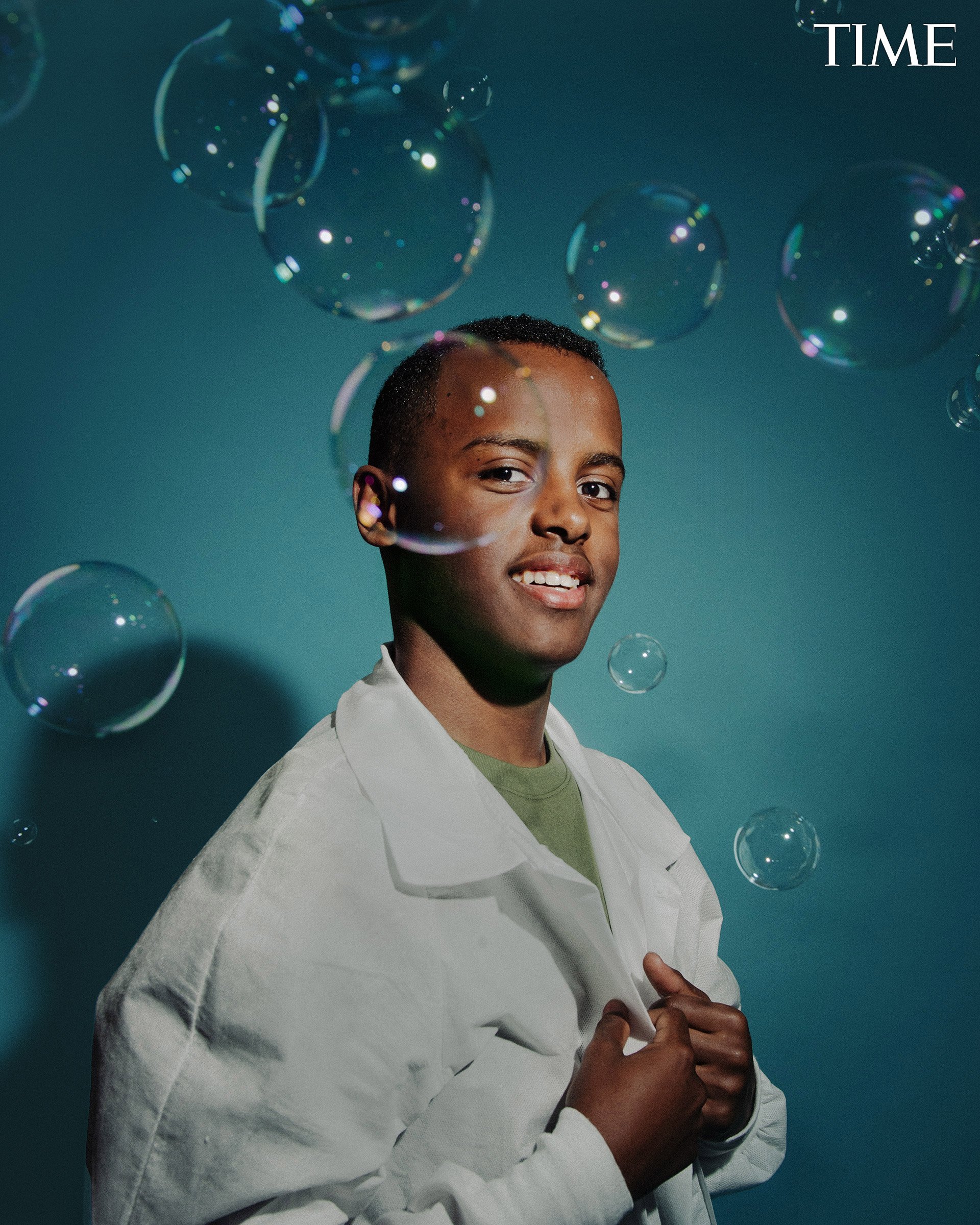At 15 years old, most high schoolers are just trying to find a homecoming date. Heman Bekele is trying to find a cure for skin cancer.
A rising sophomore at Fairfax’s Woodson High School, Bekele splits his time between the classroom and the lab at Johns Hopkins University, where he’s devising a soap that could one day treat the deadly disease. That’s the reason Time magazine named Bekele its 2024 “Kid of the Year,” in an issue set to hit newsstands on Friday.
“I was raised under the thought that I could always ask questions, be as curious as possible, learn as much as possible,” Bekele told Washingtonian. “And then all that learning and questioning pushed me to the field of science.”
Bekele, who immigrated from Ethiopia at age 4, said he was partly inspired by watching laborers in his native country toil under direct sunlight, with no protection from the sun’s UV rays.
After moving abroad, Bekele—who would entertain himself for hours as a child mixing together detergents and other under-the-sink chemicals—began wondering how he could help.
“What is one thing that is an internationally impactful idea, something that everyone can use, [regardless of] socioeconomic class?” Bekele asked himself, as he told Time. “Almost everyone uses soap and water for cleaning. So soap would probably be the best option.”
So, about two years, Bekele began his alchemy anew; this time, instead of mixing together chemicals willy-nilly, it was a deliberate trial-and-error process, as he tried to find the right drug he could successfully infuse into the antiseptic. It led to a lot of melted bars of soap, he said.
It also led him to learning about a cream-based skin cancer treatment called Imiquimod, which proved effective—but can cost as much as $180 for the uninsured in America, and even more back in Bekele’s native Ethiopia. Bekele devised a mixture that included the medicated cream, plus coconut oil and shea butter to ensure the drug actually permeated the skin membrane like a moisturizer, and didn’t just wash off in the shower.
“It was all just at home,” Bekele told Washingtonian. “But it was great as a foundational experiment, to come up with the idea and test it very lightly.”
Bekele knew he’d need an actual lab to refine his creation. So, in 2023, he applied to the Young Scientist Challenge, organized by the Minnesota-based tech company 3M. Bekele flew out to St. Paul to pitch his soap to a panel of judges.
Bekele won, taking home $25,000 and the title of America’s Top Young Scientist. He was paired with a mentor from 3M, engineering specialist Deborah Isabelle, who he credits with helping him learn from the “error” part of trial-and-error. But the real reward would come at a networking event in February, when he bumped into a Johns Hopkins professor who had heard of his success.
“I remember reading somewhere something about this young kid who had an idea for a skin-cancer soap,” Vito Rebecca, a molecular biologist at the Baltimore university, told Time. “It immediately piqued my interest, because I thought, how cool, him wanting to make it accessible to the whole world.”
After learning Bekele was only a state away from Johns Hopkins, Rebecca invited him over to his lab. Since then, the two have been testing the soap on lab mice, working toward an eventual FDA patent. Still, a potential patent approval would be years away, and for now, Bekele says he doesn’t anticipate having to make the drive to Baltimore during the upcoming school year. After all, he’ll be busy taking his first high school chemistry class.















